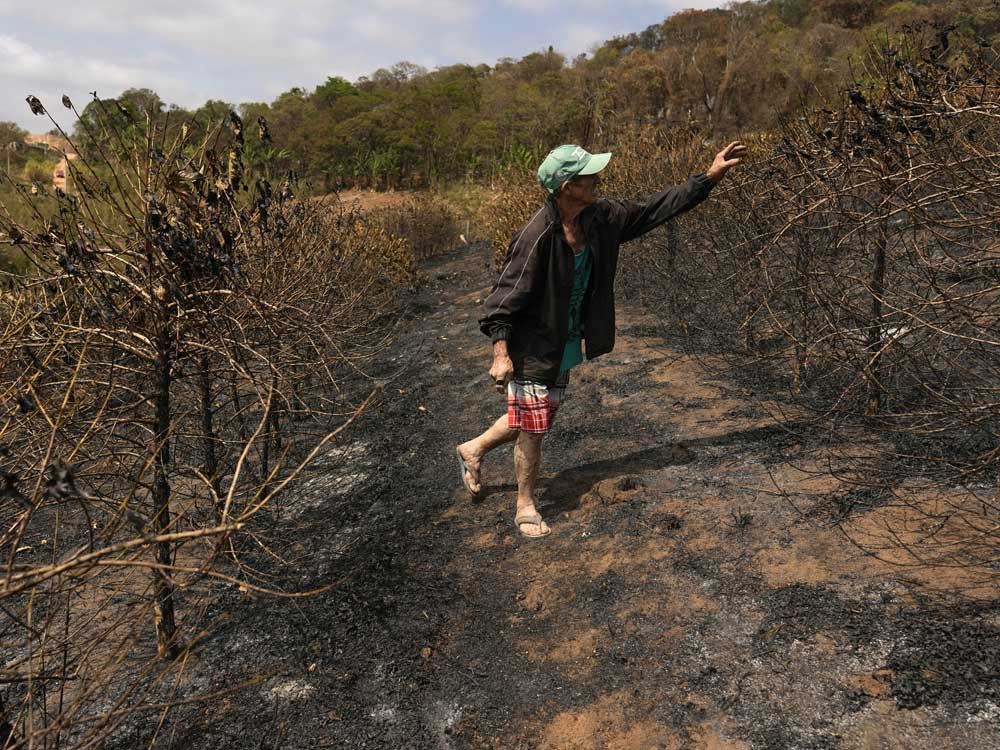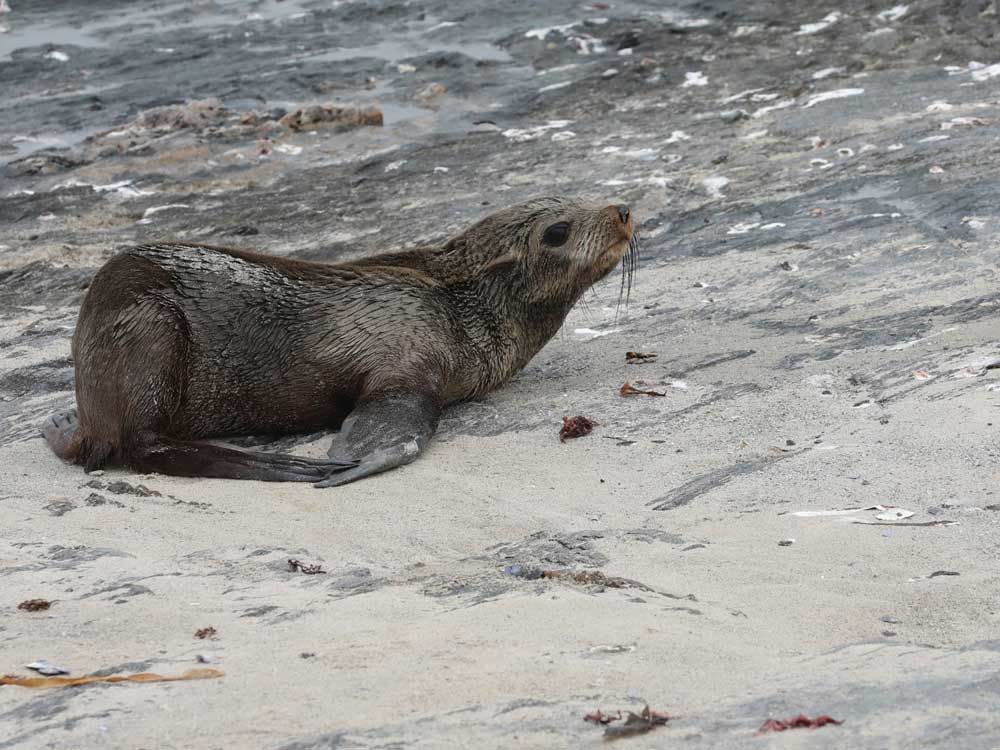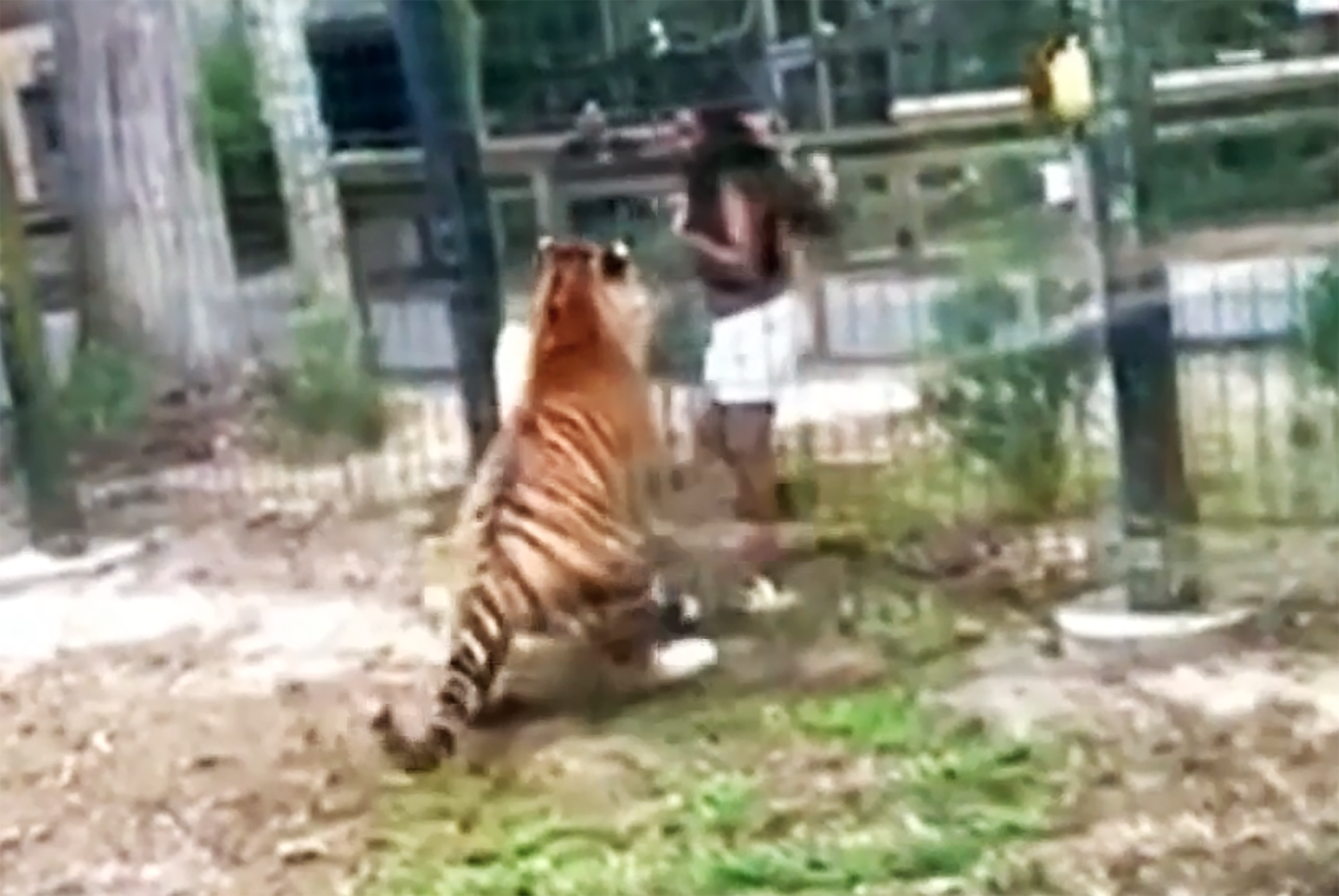The Mike Harris government ended the practice. But the Doug Ford government reversed course on a blood sport that can also transmit serious disease.
Published Sep 03, 2024 • Last updated 0 minutes ago • 3 minute read

Why is Ontario expanding a blood sport like penned dog hunting? Releasing dogs into a fenced-in pen to track — and often attack, maim or kill — captive foxes, coyotes and rabbits is clearly archaic and cruel.
What many people may not realize is that these facilities also increase the risk of spreading a potentially fatal infectious disease in Ontario.
In 1997, the Mike Harris government made the right decision to phase out penned dog hunting by prohibiting new licences for these so-called “train and trial” facilities. Last year, the Doug Ford government abruptly reversed course, announcing that new licences would become available in 2024.
Advertisement 2
THIS CONTENT IS RESERVED FOR SUBSCRIBERS ONLY
Subscribe now to read the latest news in your city and across Canada.
- Exclusive articles from Elizabeth Payne, David Pugliese, Andrew Duffy, Bruce Deachman and others. Plus, food reviews and event listings in the weekly newsletter, Ottawa, Out of Office.
- Unlimited online access to Ottawa Citizen and 15 news sites with one account.
- Ottawa Citizen ePaper, an electronic replica of the print edition to view on any device, share and comment on.
- Daily puzzles, including the New York Times Crossword.
- Support local journalism.
SUBSCRIBE TO UNLOCK MORE ARTICLES
Subscribe now to read the latest news in your city and across Canada.
- Exclusive articles from Elizabeth Payne, David Pugliese, Andrew Duffy, Bruce Deachman and others. Plus, food reviews and event listings in the weekly newsletter, Ottawa, Out of Office.
- Unlimited online access to Ottawa Citizen and 15 news sites with one account.
- Ottawa Citizen ePaper, an electronic replica of the print edition to view on any device, share and comment on.
- Daily puzzles, including the New York Times Crossword.
- Support local journalism.
REGISTER / SIGN IN TO UNLOCK MORE ARTICLES
Create an account or sign in to continue with your reading experience.
- Access articles from across Canada with one account.
- Share your thoughts and join the conversation in the comments.
- Enjoy additional articles per month.
- Get email updates from your favourite authors.
Sign In or Create an Account
or
Article content
During penned dog hunting, which is illegal in all other Canadian provinces, participants pay to release their dogs in fenced-in pens to track captive wild animals, sometimes even holding competitions with prizes. The animals are chased repeatedly and, as documented in an undercover investigation, they are often attacked and killed by the dogs.
In the distant past, people would watch animals forced into fighting and killing each other in events such as dog fights and bear-baiting. Given our societal shift away from these blood sports, Ontario’s move to expand penned dog hunting is shocking. To make matters worse, the government seems to be turning a blind eye to the associated risks of increased exposure to Echinococcus multilocularis — a parasitic tapeworm of coyotes and foxes that can cause fatal disease in humans.
Until recently, in Canada, E. multilocularis was found almost exclusively in the Arctic and parts of the prairies, where coyotes and foxes carry the tiny tapeworm asymptomatically in their intestines, and only rodents such as mice and voles developed severe disease. However, likely related to the introduction of a more aggressive European strain, the parasite has now been found in coyotes in many other provinces where it was previously absent — including Ontario.
Advertisement 3
Article content
More than 20 per cent of coyotes in Canada now carry the parasite in their stool. And dogs can also carry the tapeworm in their intestines, shedding eggs asymptomatically in their feces.
In humans, the parasite can cause alveolar echinococcosis (AE) — a potentially fatal disease that typically develops undetected for years. After accidental ingestion of the microscopic eggs through contact with the feces of coyotes, foxes or dogs, or with contaminated soil or food, cysts begin to form, invade the liver and grow like a malignant cancer. So far, there have already been more than 30 cases of this severe disease reported in Canada (mostly in Alberta).
Ontario’s irresponsible plan to allow more penned hunting will increase the amount of trapping, transporting and handling of foxes and coyotes, and increase the risk of transmission to dogs. In turn, after they leave penned hunting facilities, the infected dogs can spread the parasite to other dogs and family members outside of the penned hunting community.
Echinococcosis is not the only health risk posed by penned dog hunting. Experts such as Dr. Emily Jenkins, professor of Veterinary Microbiology at the University of Saskatchewan, are clear that dogs who hunt coyotes may become infected with other parasites and diseases, such as distemper and rabies, which are serious and even fatal if untreated.
Advertisement 4
Article content
The health risks of penned dog hunting have already been brought to the attention of Natural Resources Minister Graydon Smith in an application for review filed last March. However, the ministry’s reply, rejecting the application, stated that “the Ministry is not aware of evidence to suggest that wildlife being kept in train and trial areas, presents a risk to human health.”
Health Minister Sylvia Jones needs to step up to the plate to protect us and our dogs from this devastating disease. If animal suffering caused by this cruel bloodspot alone doesn’t give the government pause, surely the fact that penned dog hunting also increases the risks of spreading a potentially fatal infectious disease should be reason enough to hit the brakes before it’s too late.
Dr. Stan Houston and Dr. David Waldner are infectious diseases specialists based in Alberta. Dr. Jan Hajek is an infectious diseases specialist based in British Columbia.
Recommended from Editorial
-

Udderly mystifying: Why were three calves and a dog left in an abandoned truck?
-

Ottawa staff recommend pilot project with Coyote Watch Canada in review of wildlife strategy
Article content
.png)
 2 weeks ago
15
2 weeks ago
15



































 Bengali (BD) ·
Bengali (BD) ·  English (US) ·
English (US) ·